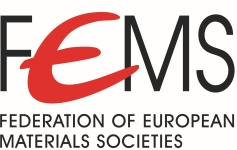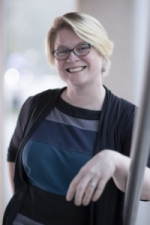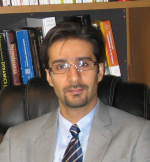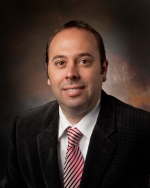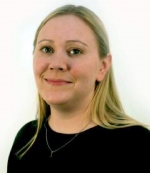TMS-FEMS Young Leader International Scholar Program
The Minerals, Metals & Materials Society (TMS)and the Federation of European Materials Societies (FEMS) established a joint Young Leader International Scholar Program to promote young member activities and strengthen the collaborations between these international societies. Each society will identify representatives who will present a lecture at a central event of the correspondent society and will tighten the links between USA and European in the area of materials science and engineering.
TMS-FEMS Scholar 2019
Assistant Professor Jennifer L.W. Carter, Case Western Reserve University, Ohio, USA
Jennifer L.W. Carter became an Assistant Professor at Case Western Reserve University in January of 2013, after receiving her Ph.D. in Materials Science and Engineering at OSU in December of 2012. She has built her career quantifying the relationships and correlations between microstructure and performance of metallic materials for elevated temperature environments such as power plants and jet engines. She has become an emerging scholar in the application of data analytics and machine learning to the design of structural materials, in 2016 she was awarded an NSF-CAREER program for her work in this interdisciplinary field. Her work focuses on the development and application of high throughput, and automated experimental measures of material structure and performance. With the objective of providing experimental measures for understanding deformation mechanisms and validating physics-based computational models of material performance. She has published ten peer-reviewed articles, six conference proceeding articles, and two NASA technical memorandums, and been invited to presented her research at numerous international conferences. She was awarded a 2014 TMS Structural Materials Division Young Professional Award.
In addition to her technical achievements, Jennifer devotes her time to STEM education and the promotion of the inclusion of diverse viewpoints to the field of science and engineering. She is an academic advisor for undergraduate students majoring in Materials Science, and an affiliated faculty with the Applied Data Science Minor. In 2016, she was awarded the ASM International Bradley Stoughton Young Educator award for her innovative use of active learning pedagogies in the engineering classroom; and in 2018 she was nominated by students for the CWRU John S. Diekhoff Award for Distinguished Graduate Student Mentoring. She is an active member of The Metals Minerals and Materials Society, currently serving as the chairperson for the Mechanical Behavior Subcommittee (2018-2020) and the past chairperson of the Diversity Committee (2014-2016).
Her award lecture at EUROMAT Stockholm: Predictions of Long-Term Creep Life of the family of 9-12 wt% Cr martensitic steels
Links to J Carter's publications:
https://doi.org/10.1016/j.jallcom.2019.152417
https://doi.org/10.1016/j.msea.2019.138142
https://doi.org/10.1007/s11661-019-05234-9
TMS-FEMS Scholar 2017
Dr Mohsen Asle Zaeem, Missouri University of Science and Technology, Rolla USA
Mohsen Asle Zaeem is the Roberta and G. Robert Couch Assistant Professor of Materials Science & Engineering at Missouri University of Science & Technology. Dr Zaeem received his B.S. (2003) and M.S. (2006) in Mechanical Engineering from Shiraz University, Iran, and his Ph.D. in Mechanical Engineering from the School of Mechanical and Materials Engineering at Washington State University (2010).
Dr. Zaeem has published more than 45 peer-reviewed journal articles, and he is currently serving as an editor of the Journal of Metals, and he is also a member of the editorial board of Mathematical Problems in Engineering and International Journal of Materials Engineering and Technology.
Dr. Zaeem is a member of different technical committees of TMS, including Computational Materials Science and Engineering, Solidification, Phase Transformation, and Young Professionals Committees. Dr. Zaeem is the recipient of 2016 Faculty Research Excellence Award of Missouri S&T, 2016 Certificate of Highly Cited Research in Computational Materials Science (Elsevier), 2015 Certificate of Excellence in Reviewing from Acta Materialia, 2015 TMS Young Leader Professional Development Award, 2015 Junior Faculty Award from Mines and Metallurgy Academy, and 2015 ACS New Investigator Award.
His award lecture can be downloaded here
TMS-FEMS Scholar 2015
Kyle S. Brinkman, Associate Professor Materials Science and Engineering, Clemson University
Kyle Brinkman is an Associate Professor in the Department of Materials Science and Engineering at Clemson University in Clemson, South Carolina. He received his Ph.D. in Materials Science and Engineering from the Swiss Federal Institute of Lausanne (EPFL), obtained an M.S. in Materials Science and Engineering and a B.S. degree in Chemical Engineering from Clemson University. He recently joined Clemson in 2014 from the DOE’s Savannah River National Laboratory (SRNL) where he was a Principal Engineer in the Science and Technology Directorate and Program Manager for Energy Efficiency and Renewable Energy Technologies.
Prior to working at SRNL, Kyle was a fellow of the Japanese Society for the Promotion of Science working in a Japanese “National Laboratory” the National Advanced Institute of Science and Technology (AIST) in Tsukuba, Japan. His research is focused on electronic ceramics for gas separation and processing in commercial and nuclear domains, structure/property relations in solid oxide fuel cell systems, and radiation tolerant crystalline ceramics for applications in nuclear energy.
TMS-FEMS Scholar 2013
Amy J. Clarke, Materials Science and Technology–Metallurgy Group, Los Alamos National Laboratory, New Mexico, USA
Amy Clarke received her Bachelor of Science degree in Metallurgical and Materials Engineering from Michigan Technological University (MTU) in Houghton (MI, USA) and her Master of Science degree in Metallurgical and Materials Engineering from the Colorado School of Mines (CSM) in Golden (CO, USA). She was a visiting researcher in 2004 at the Laboratory for Iron and Steelmaking with Professor De Cooman at Ghent University (BE) and in 2005 with Professor Rizzo at the Pontifícia Universidade Católica do Rio de Janeiro (PUC-Rio) in Brazil. She received her Ph.D. in Metallurgical and Materials Engineering from the Advanced Steel Processing and Products Research Center (ASPPRC) at the Colorado School of Mines (CSM) in Golden (CO, USA) in 2006 for her dissertation entitled “Carbon Partitioning into Austenite from Martensite in a Silicon-Containing High Strength Sheet Steel”.
Dr. Clarke has been granted several honors and awards, including: the Willy Korf Award for Young Excellence (2007) for her Ph.D. research, a TMS Young Leader Professional Development Award (2008), a TMS/Japan Institute of Metals Young Leader International Scholar (2010) award, and a United States Department of Energy Office of Science Early Career Research Program Award and a Presidential Early Career Award for Scientists and Engineers (PECASE) in 2012. Dr. Clarke was a G.T. Seaborg Institute Postdoctoral Fellow (2006-2008) and a Postdoctoral Research Associate (2009-2010) with the Metallurgy Group of Los Alamos National Laboratory (LANL) in Los Alamos (New Mexico, USA) and a Senior Development/Research Engineer (2008-2009) in Advanced Materials Technology at Caterpillar Inc. in Mossville (IL, USA). Since 2010, Dr. Clarke has been a Research and Development Scientist in the Metallurgy Group at LANL.
The research experience of Dr. Clarke includes in-situ analyses of materials using x-rays, neutrons, and protons at National User Facilities; the study of liquid-solid and solid-state phase transformations; the evolution of microstructure and properties associated with processing variations; and microstructure characterization of uranium, steel, and aluminum alloys.
Direct Interrogation of Metallic Alloys during Melting and Solidification
A solidification microstructure is the product of the processing path used to create it. Understanding this linkage is vital for structural materials because the solidification microstructure profoundly affects properties and performance. Destructive, post-mortem microstructure analysis can provide insight into what occurred at elevated temperatures, but in-situ observations during processing provide direct evidence as to how the microstructure evolves. Transparent organic analogs have been used to simulate solidification in metallic alloys in order to test aspects of solidification theory, but in-situ characterization techniques now afford direct interrogation of metallic alloys during synthesis and processing. In this work, synchrotron x-ray radiography/tomography and proton microscopy (first experiments) were used to directly interrogate small and large volumes, respectively, of metallic alloys during melting and solidification. These capabilities will permit the advancement of solidification theory, the development of predictive solidification and microstructure evolution models, and in-process adjustments through feedback systems to dynamically control microstructure evolution.
